

Farewell from LWC, you are now a Sternian!



Farewell from LWC, you are now a Sternian!
As you step beyond the Acorn Gates - slightly taller, slightly wiser, and probably still with a smidge of lunch on your shirt, you carry with you a rucksack of memories: friendships forged in laughter and occasional chaos, moments of quiet triumph, and the curious sense that something quite wonderful might be waiting just around the next corner.
The paths ahead of you are infinite. Some will be smooth and sun-dappled; others will have potholes, unexpected hills, and the odd hairpin bend. But that’s the joy of it; you’ll each take different routes, yet somehow, inevitably, your paths will cross again. Those chance meetings, those shared glances across train platforms or reunion dinners, will remind you that home is not just a place. It’s people.
You’ve become impressive young adults, which is no small thing. We’ve watched you grow in confidence, deepen in thought, and, in some cases, finally return your library books. As a school, we’ve evolved too - new buildings, new ideas, new ambitions - but our essence remains unchanged. This is still a place where you can breathe, stretch, stumble, start again, and slowly but surely, tell your story. The 1200 acres help, of course. Room to roam. Room to dream.
The best schools never sit still. They challenge, they change, they poke and prod. And we hope we’ve done that - nudged you gently out of your comfort zone and into something a little braver. The lessons you’ve learned here - of resilience, creativity,
Issue 4: August 2025
collaboration and compassion aren’t just academic. They are quietly revolutionary. And they will serve you far better than any algorithm ever could.
Although your time here as pupils has drawn to a close, your story with us is far from over. As Sternians, you are part of something enduring. The heartbeat of LWC’s legacy. And whether it’s at reunions, through LWC Connect, or just wandering back up the drive one misty morning, know that this place is yours. Always was. Always will be.
We set out to help you become inwardly self-confident and outwardly modest, passionate and curious, ambitious to make a positive difference. And now, as we look at you - full of questions, full of promise, full of optimism - we find ourselves wondering: did we manage it? Or did you teach us a few things along the way? We think you did, by the way…
And so, as the sun sets on this chapter and rises on the next, go with purpose. Go with kindness. And go with just enough mischief to keep things interesting.
Adam Williams Headmaster
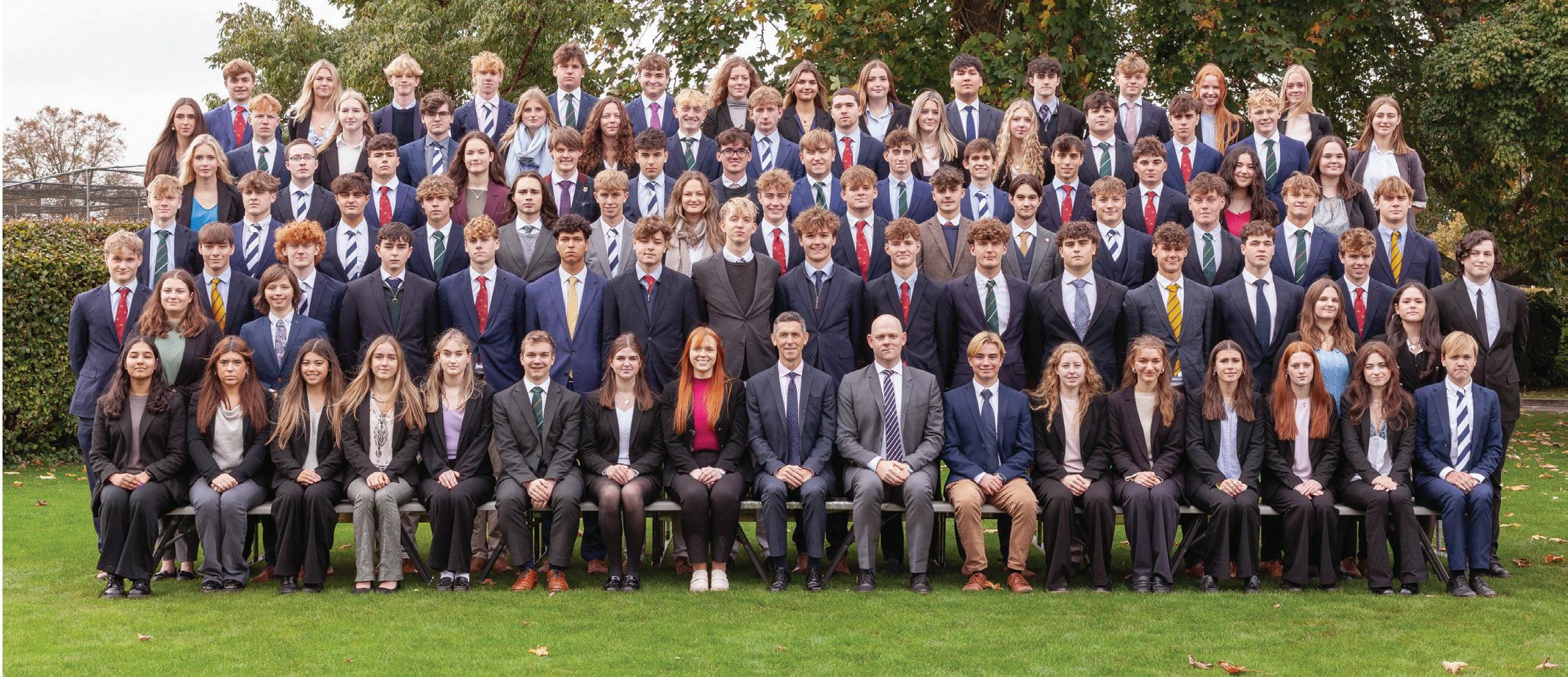
Professor Lisa Roberts, President and Vice-Chancellor, University of Exeter.

It is an honour to share my thoughts and advice on how to succeed at university, and how you can make the most of the opportunities a university education and experience provides, in order to prepare you for successful and rewarding future.
At the University of Exeter, we believe that education isn’t simply about being taught – it is about directing your own learning, and taking an active part in creating and sharing knowledge. As you finish your studies at LWC I hope you can reflect on the journey you have already undertaken, and on the attitudes, approaches, routines and habits you have developed. These are values you can apply throughout your life, and they will stand you in excellent stead for university.
University offers an exciting opportunity, and our degree programmes are designed to stimulate creativity, entrepreneurship, global outlook, leadership, resilience, and imagination. You will find opportunities to try new things, discover new ideas, and immerse yourself in the detail of your chosen subject. You will also be presented with new ways of looking at the world, and you will be encouraged to challenge your opinions so that you can consider complex issues from a range of perspectives.
For some, the transition to university is a natural extension of their learning, whilst for others it can take time to feel confident in your new environment. You will be collaborating with new people, using techniques that are less familiar, and engaging with academic tutors in different ways. This is very exciting, but can also be quite daunting, and a range of wellbeing and support services are available to support you, if you need them.
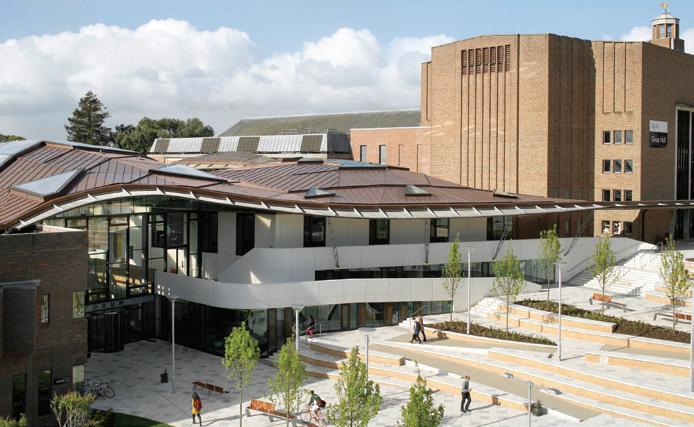
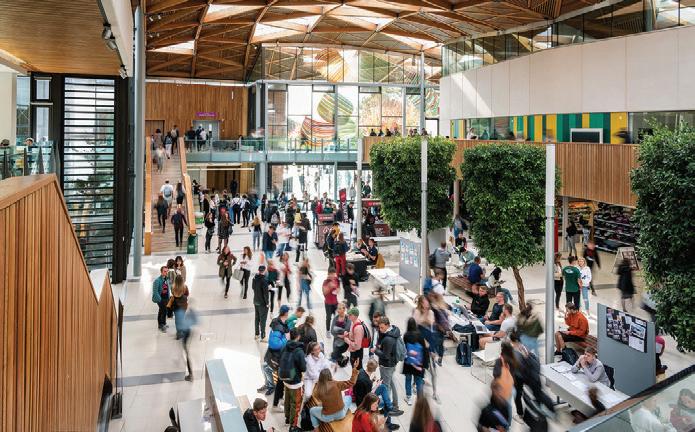
University life looks different to every student. Your first year at university is about trying things out, discovering new interests, and learning what you do, and do not, enjoy. Alongside your studies, you may be learning to cook for the first time, or independently managing your finances. University offers you the chance to practice these life skills and develop your independence. It is also a time to immerse yourself in new activities, societies and sports, and meet new friends from all over the world.
It is a very exciting time to be a student, and if you join a university like Exeter, you will become part of a global community. Across our campuses, we offer more than 400 clubs and societies covering a wide range of interests, so there will be something for you. You might not meet your new best friends on the first day, but you will seek out likeminded people who share your interests. Whether through volunteering, enterprise initiatives or mentoring, you will be able to put your personal skills to work and contribute to your vibrant new community in a way that is personally rewarding.
Settling into university life does not happen within your first week, or perhaps your first term, and you should allow yourself the time to find your rhythm and explore your personal approach. University is a fantastic place for self-discovery, and I hope you enjoy the many opportunities it will bring you, both as a student, and for the remainder of your life.
Professor Lisa Roberts, President and Vice-Chancellor, University of Exeter
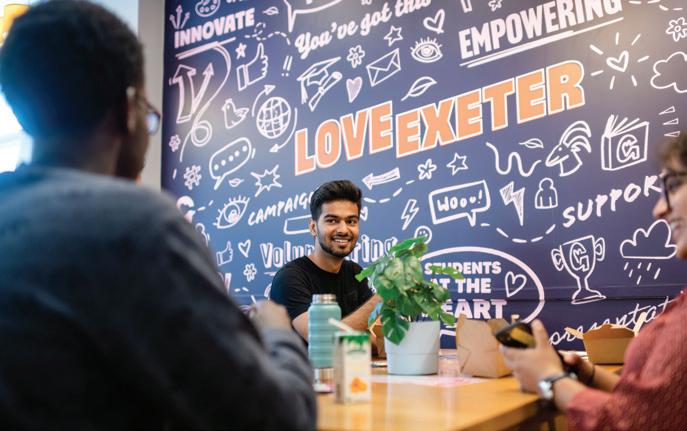
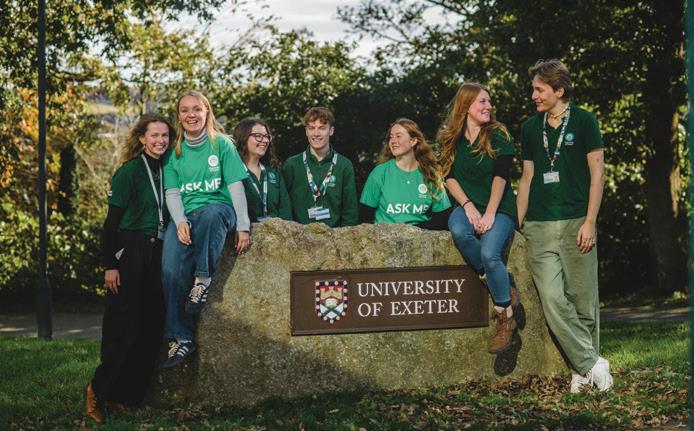
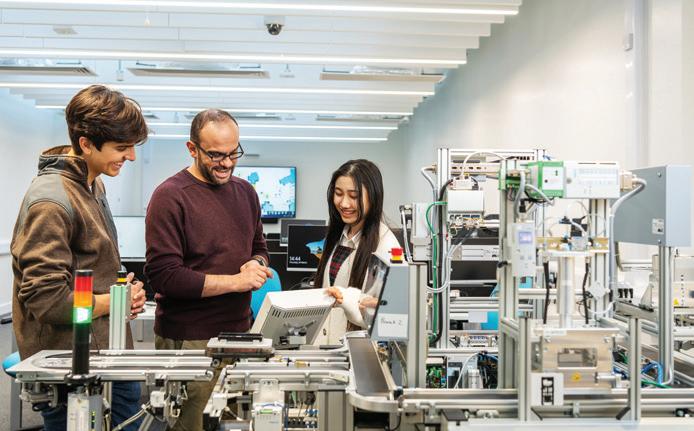
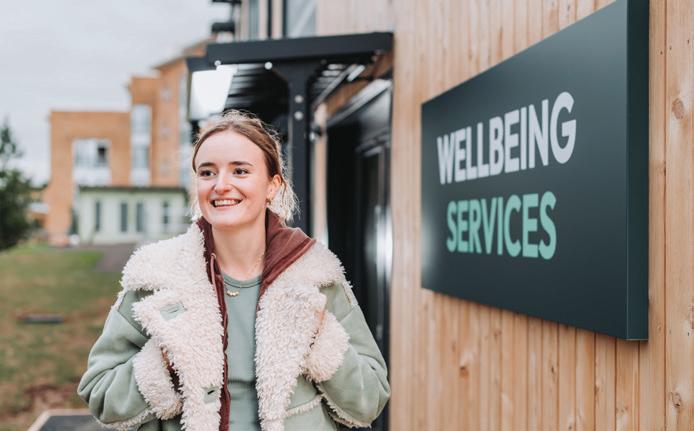
If you have decided not to apply for a university or apprenticeship place this year, don’t worry – we are still here to support your application for 2026 entry. This also applies to anyone who may decide to change course after a gap year.
As a Sternian, we hope you’ll stay in touch with the College, particularly with the Sternian Office and the Futures Team. We would be delighted to support you with your personal statement, CV, letters of application, course choices, student finance and funding, as well as general advice and guidance.
Applications for 2026 entry are already open! You can begin exploring courses using the UCAS search tool and start preparing your undergraduate application via the UCAS Hub.
2025
15 October 2025 (18:00 UK time): Deadline for applications to the universities of Oxford and Cambridge, and most courses in medicine, veterinary medicine/science, and dentistry.
If you intend to apply or reapply in 2026, please notify Mrs Hirst as soon as possible. We can then ensure your application is linked to LWC (if you wish) and that your academic references are in place.
Please keep in touch – and remember, we’re here to help you every step of the way!
With that in mind, here are some key things to be aware of and important dates for your diary.
3 September 2025: UCAS Undergraduate applications for 2026 entry can start being submitted.
2025 – March 2026
29 January 2026 (18:00 UK time): Main UCAS deadline for all other undergraduate and conservatoire applications (excluding those with the 15 October deadline).
Degree apprenticeship vacancies will begin to be released. Make sure you are registered for vacancy alerts on company websites and regularly check platforms such as: - www.amazingapprenticeships.com - www.gov.uk/apply-apprenticeship
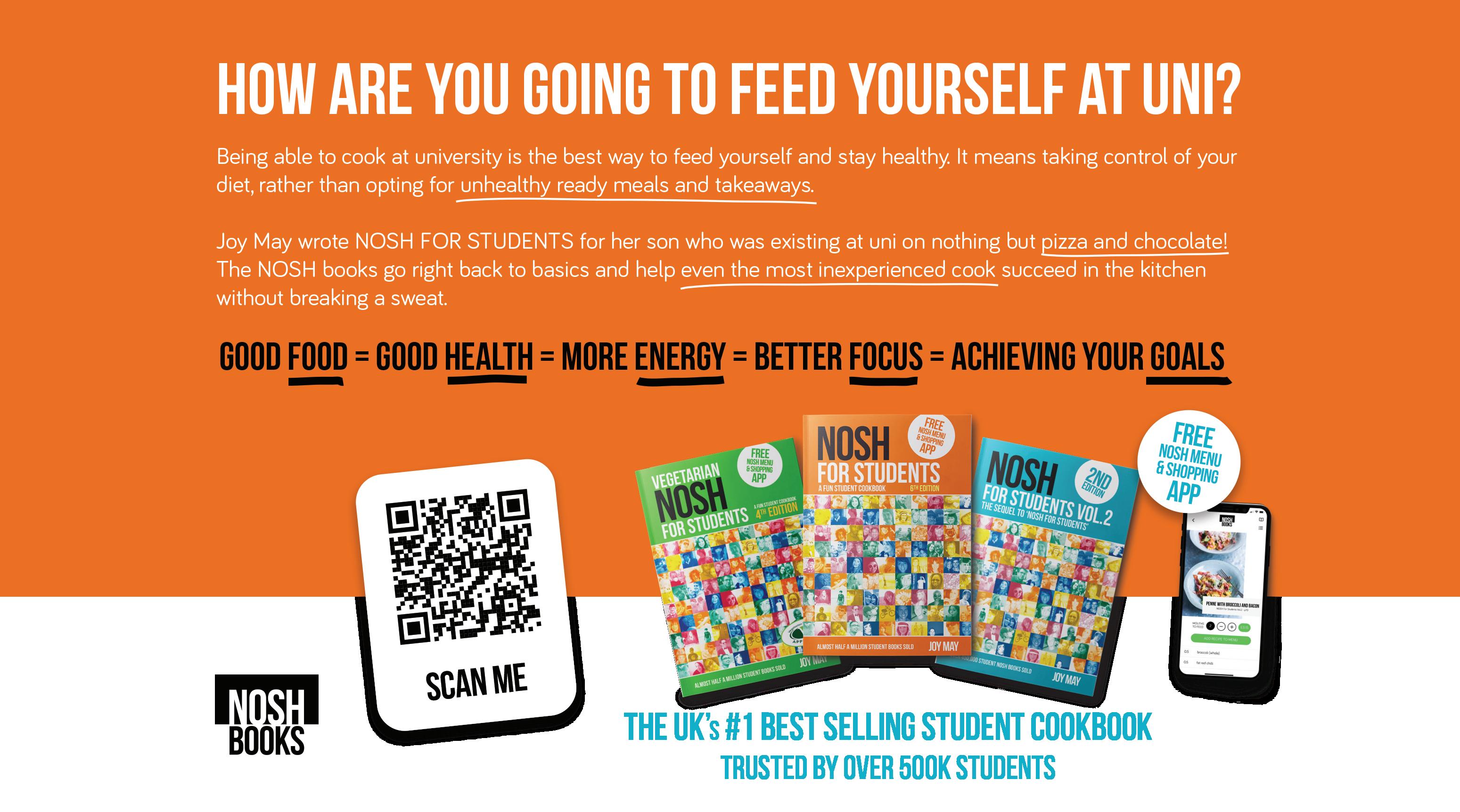
Starting your career journey can feel both exciting and overwhelming. BP believes in empowering school leavers with the tools, guidance and support to thrive from day one.
To help you better understand what employers like BP are really looking for, we’ve spoken to three of their senior team members: George Flint (HR Business Partner), Robyn Ashfield (Talent Attraction), and Claire Palmer (Early Career Recruitment). They share valuable insights on what makes early career applicants stand out, how to succeed in your first year, and why apprenticeships are such a powerful starting point for a successful career.
What qualities do you look for in someone applying to BP’s early careers programmes?
Claire: We value candidates who are not only academically strong but also aligned with our culture. Curiosity, adaptability, eagerness to learn, and the ability to thrive in dynamic environments are all essential. We’re looking for potential, drive, and how your unique strengths can support BP’s mission.
Robyn: Motivation and resilience are critical. Why this industry? Why BP? Why this role? Apprenticeships are a fantastic path, but not an easy one. You’ll face challenges, and resilience is essential.
How important are soft skills like communication and teamwork, compared to academic qualifications?
George: They’re absolutely essential. Academic results form the foundation, but it’s your soft skills, communication, collaboration, curiosity, and initiative that will set you apart.
Claire: Academic ability is important, but it’s communication and teamwork that allow you to contribute effectively. Our work is collaborative, and diverse teams solve complex problems best when they communicate and work well together.
Robyn: Some roles do need specific qualifications, but these alone won’t be enough. You must be able to work alongside others and communicate clearly, shared success depends on it.
What advice would you give to someone starting out who wants to make a strong impression?
George: Be proactive, prepared, and present. Lead your own development, set clear goals, seek feedback, and show up with energy. Own your performance and stay open to learning.
Robyn: Be open to every opportunity and every conversation. Drop any assumptions you might have. You’ll learn valuable things from different perspectives.
Claire: Engage from day one. Arrive ready to learn, contribute, and add value, doing so will set you on the right path.
What are some common mistakes new starters make in their first year, and how can they avoid them?
George: Not asking for help early, undervaluing feedback, and focusing too narrowly on tasks without considering the bigger picture. Build relationships, find mentors, and create a personal development plan to stay on track.
Claire: The first year is a major adjustment. Mistakes include ignoring the induction, failing to ask “why” behind tasks, neglecting cross-team relationships, or overcommitting. Stay curious, pace yourself, and connect with others.
Robyn: Many underestimate the importance of networking. BP offers many opportunities to build your network, but you must take initiative. Listen carefully to how others communicate. With no set curriculum, you must shape your own path.
What attitudes help young employees stand out early on?
George: Go beyond your immediate role. Demonstrate resilience, welcome feedback, and seek out diverse experiences across the business.
Claire: Curiosity, proactivity, adaptability, and collaboration are key traits we look for in early-career talent.
Robyn: Bring energy and enthusiasm. Expect to feel uncomfortable and learn to be comfortable with that. Growth often begins in discomfort.
How can school leavers demonstrate initiative or leadership potential with little work experience?
George: Volunteer for stretch tasks, ask insightful questions, show dependability, and display a hunger to learn.
Robyn: Use your day-to-day role as a launchpad. Look for gaps or opportunities. Being new gives you a unique licence to ask “why?”. Join business resource groups or early careers committees.
Claire: Don’t wait for opportunities, create them. Leadership experience can come through participation in committees and supporting community initiatives within BP.
What does long-term success look like for someone joining BP through an apprenticeship?
George: Building broad skills, contributing to major projects, understanding your own goals, and eventually mentoring new apprentices.
Robyn: Maintaining a lifelong growth mindset. There’s always more to learn, technically and personally. When you feel confident, seek the next challenge. Careers are rarely linear, embrace the twists and turns.
Claire: Long-term success also means giving back. Mentoring new starters and sharing your journey is a key part of thriving in the long run.
What values or ways of working are important in BP’s culture?
George: Networking is vital. Your rotations give structure, but your network opens doors. An apprenticeship doesn’t restrict your experiences; your approach unlocks them.
Robyn: Have a look at ‘Who We Are’ on bp.com for a deeper understanding of our values.
How important is mentorship for early careers talent at BP?
George: Mentorship is a core part of the experience. Every early career employee has a line manager, a programme lead, and peer support. Regular feedback and wellbeing support are built in.
Claire: It’s embedded in all our programmes. You’ll build a ‘board of directors’ around you, people who support and champion you. You’ll also join a global community with access to leaders and events.
Robyn: You’ll be well supported from the start. Formal mentors will guide you, but informal mentors (those you find along the way) are equally valuable.
What are your top three tips for thriving at a large company like BP?
George:
1. Be visible – Speak up, share progress, and build relationships.
2. Be curious – Ask questions and explore the wider business.
3. Be resilient – Embrace feedback and adapt to change.
Claire:
1. Own your development – Be proactive in learning and growth.
2. Build a strong network – Relationships are key to long-term success.
3. Engage in the community – Join early careers committees and attend events.
Robyn:
1. Explore the business – Understand how different teams connect.
2. Network widely – Every conversation is a chance to learn.
3. Volunteer – High-visibility projects can help you stand out.
Are there current opportunities for school leavers at BP?
Robyn: Our next apprenticeship opportunities go live on bp.com in early November. You can view listings from this year’s intake now to get a sense of what’s on offer, though roles may change from year to year.
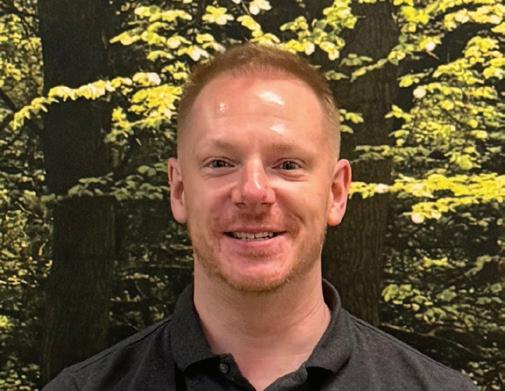

What’s the best career advice you’ve ever received and would pass on?
George: “Don’t wait to be asked. Step forward, stretch yourself, and do the work that intimidates you. That’s where you’ll grow.”
Claire: “You are the CEO of your own career.” Own it. Be proactive and intentional throughout your journey.
Robyn: Everyone experiences imposter syndrome, acknowledge it and keep going.
Why does BP choose to hire apprentices across different departments?
Robyn: Apprentices bring fresh thinking and a strong desire to learn. They add real value to their teams. Apprenticeships also help us diversify our workforce, better reflecting the communities we serve.
Claire: Apprenticeships offer a fantastic hands-on learning experience and a clear career path. Our apprentices make a genuine impact; we’re incredibly proud of their contributions.
Apprenticeships are more than just a stepping stone; they provide a solid foundation for a successful and rewarding long-term career. They offer a unique combination of hands-on experience, skill development, and personal growth that simply can’t be replicated in a classroom setting. Whether you’re starting your journey with BP or taking up an opportunity with another employer, it’s the mindset you bring that will truly set you apart.
Showing curiosity, resilience, initiative, and a willingness to learn will help you stand out and adapt in an ever-changing workplace. These qualities reflect a readiness to grow, take on challenges, and make a meaningful contribution to your team and organisation.
The world of work may feel unfamiliar at first but remember, you’re not expected to have all the answers straight away. With the right support, guidance, and a proactive attitude, you’ll gradually build confidence and develop the skills you need to thrive.
Ultimately, apprenticeships aren’t just about learning a role; they’re about shaping your future and becoming the kind of professional who grows, leads, and makes a lasting impact.
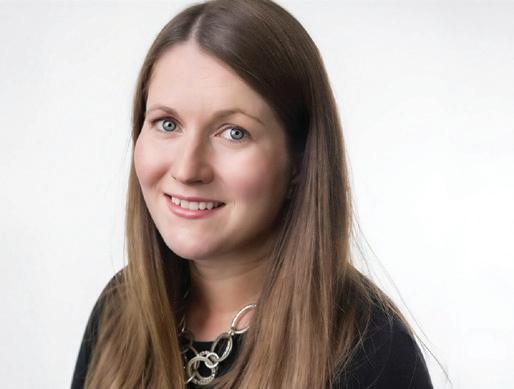
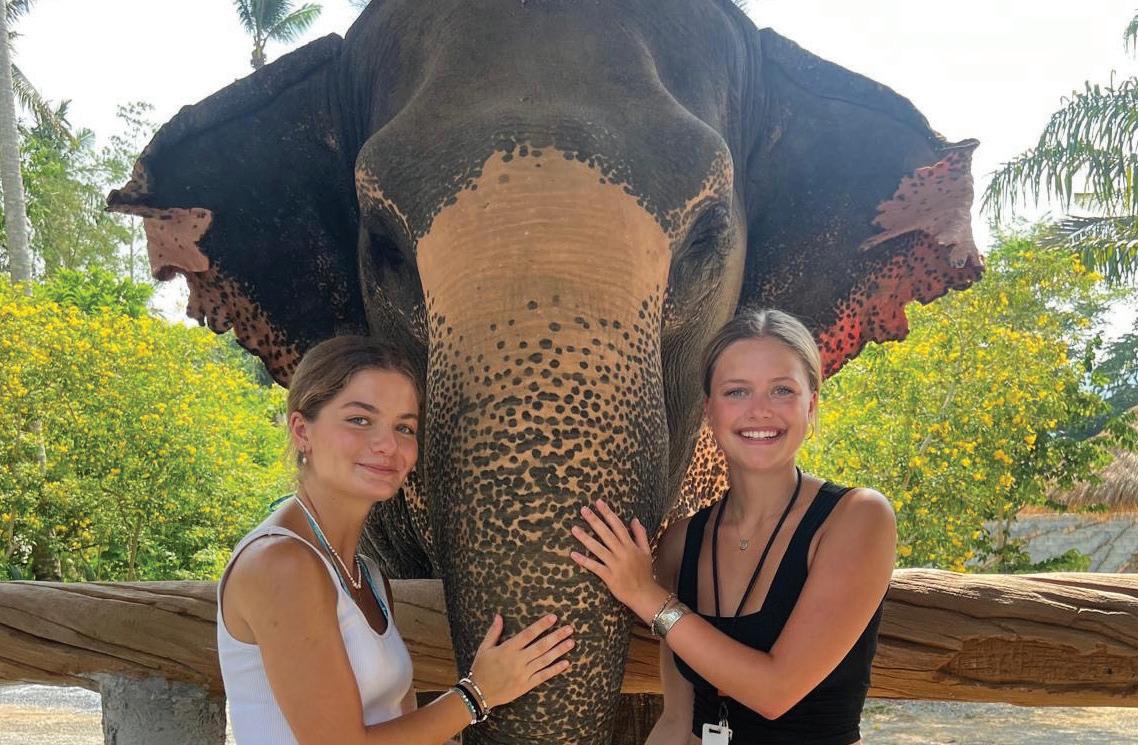
Sophie Goodwin (Park, 2023 leaver) embarked on an exciting gap year
after finishing her A levels.
Now in her first year studying Biomedical Sciences at the University of Exeter, she reflects on her experiences, lessons learnt, and the adventures that shaped her year away from education. We caught up with Sophie to hear all about her journey.
What made you decide to take a gap year, and what were your goals when you set out?
I decided to take a gap year relatively early on in Sixth Form. As someone who was still unsure about the right university course, taking a gap year eased the pressure slightly, especially with the safety net of knowing I could reapply post A levels and still change my mind. This made it much easier to choose a course, as it didn’t feel like the be-all and end-all – and since then, I’ve absolutely loved the course I’m now studying.
Your final year at LWC is also pretty intense, with university applications, preparing for and sitting exams, alongside everything else going on. I knew a gap year would give me the chance to do something completely different, away from education. It felt like the perfect opportunity to take a break and experience something new.
Going into my gap year, I didn’t really have a big plan. All I knew was that I wanted to earn some money to hopefully travel later in the year, as well as contribute to my savings for university. My plan sort of evolved as the year went on, which gave me loads of freedom in deciding what I wanted to do and when.
Where did your gap year take you, and what did you do?
From September to the end of February, I worked in a children’s nursery as a nursery assistant, and also as a front of house member of staff at Farleigh Wallop Estate.
Both jobs taught me so much – not just job-specific skills but also general lessons about working life and what it means to commit to a role.
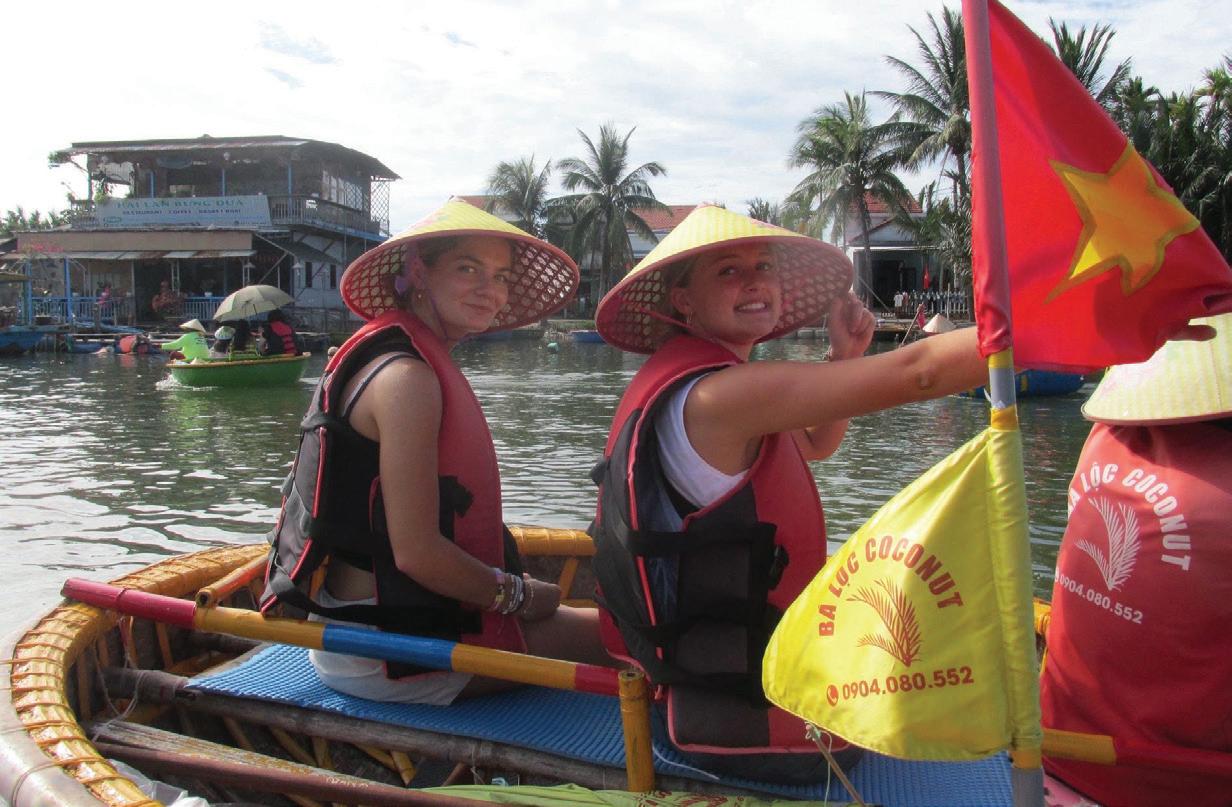
Once I’d earned enough money, I went travelling in South East Asia with one of my friends. We flew to Jakarta in Indonesia, then made our way to Bali and onto the island of Lombok. After about a month, we left Indonesia for Thailand, where we met up with four other girls and travelled around the southern islands. Finally, three of us worked our way from south to north through Vietnam before heading back home to the UK.
What was the most memorable part of your gap year?
Completing the Ha Giang Loop motorbike tour in Vietnam has to be a highlight. It was right at the end of our trip, so we were making the most of our final days, and I can genuinely say it was one of the best four days of my life. The views, the activities, and the people were all incredible, and it was such an amazing way to end the trip.
If you’d told me before I left that I’d be going around northern Vietnam on the back of a stranger’s motorbike, seeing and doing such incredible things, I wouldn’t have believed you. The loop summed up everything our trip was about and really reflected the independence and freedom I’d gained while travelling the world.
Were there any unexpected challenges, and how did you handle them?
Too many! From hospital trips to incorrectly booked flights, there were countless challenges we had to overcome. Navigating Vietnam with one of us in a cast and on crutches was probably the most difficult!
Every time we faced a new challenge, the truth is – we had no idea what we were doing. Our parents weren’t there to lean on anymore. We were forced to figure it out ourselves, and somehow, we did. In the process, we gained so much independence and practical knowledge without even realising it. Those tough moments definitely helped me grow up a bit and take on more responsibility, which has been helpful ever since.
How did you plan and organise your gap year? Did you use an agency, go it alone, or a bit of both?
We left to go travelling with only our first night’s accommodation booked. We had very little planned and just went wherever we felt like going and doing whatever we felt like doing. When travelling, you meet so many like-minded people who offer great advice based on their own experiences. We hadn’t necessarily planned to move on from Indonesia, but we ended up visiting two more countries. We had such an incredible amount of freedom, which meant we ended up doing things I never would have dreamed of!
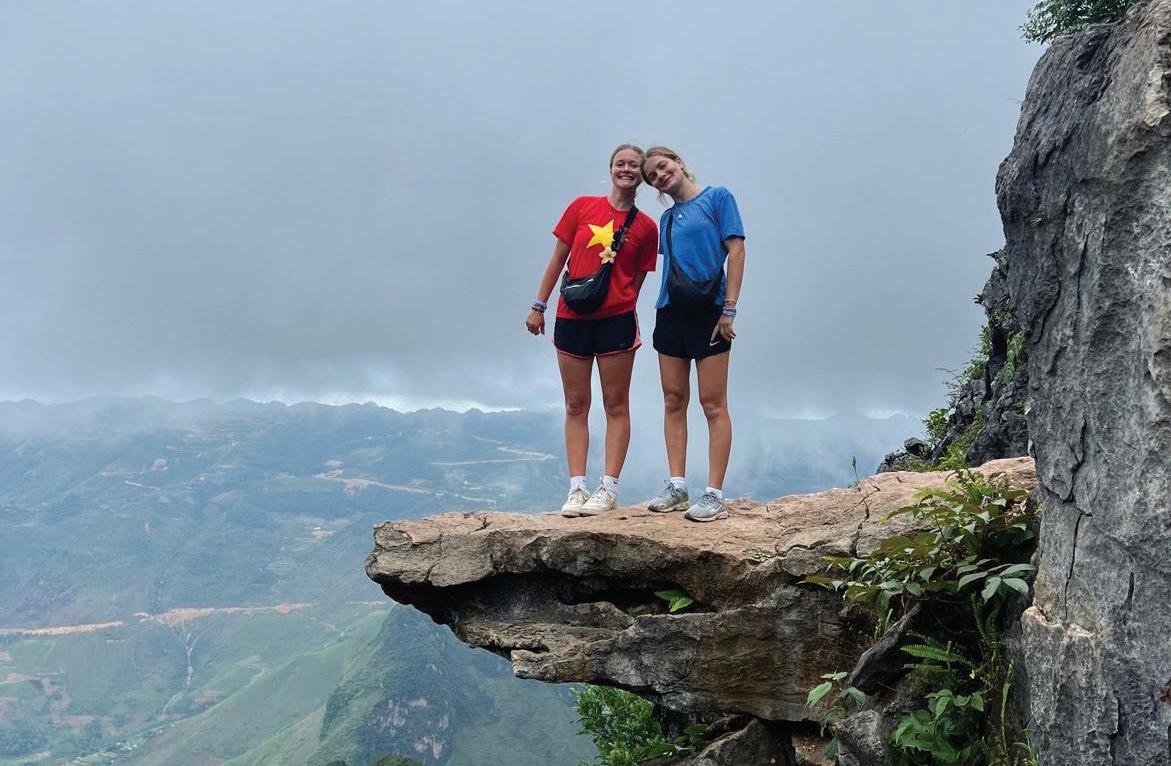
How did you manage your finances during your gap year? Do you have any budgeting tips?
Before we left, we worked out roughly how much money we had to spend while away so we had a clear limit. Although we wanted to maximise our time, we also didn’t want to come home completely broke.
Depending on where you are and what you’re doing, your spending can vary a lot. We felt quite strongly that we’d rather do loads of activities and really make the most of our time, even if that meant a shorter trip – but that’s just a personal choice.
Hostels in South East Asia are incredibly inexpensive and, generally, quite nice. This definitely helps save money. Hostels also often run activities that are cheaper than booking independently, which also helps. The biggest expense is usually travel between places, so it’s definitely worth taking the long bus journeys over flying – those long rides really do save a lot of money!
I learnt more than I could have ever imagined. Seeing different parts of the world exposed me to so many new cultures and ways of living.
Is there anything you wish you had known before starting your gap year?
Start earning money as soon as possible. If you want to go and do something – travelling or not – you’ll likely need money to really enjoy it. The quicker you save, the sooner you can set off. Most importantly, appreciate every part of it! You’ll learn so much about yourself and the world. Looking back, I think I learnt just as much from working and holding down a proper job as I did from travelling. There are very few times in life (if ever again!) where you have zero responsibilities and can just take off and do whatever you want. Enjoy every second of it!

What have you learned about yourself or the world as a result of your experiences?
I learnt more than I could have ever imagined. Seeing different parts of the world exposed me to so many new cultures and ways of living. I was inspired by different approaches to life –how different people prioritise different things – which was truly eye-opening.
Heading into university, I felt much more prepared. The independence and freedom I experienced during my gap year helped me mature significantly. I felt more confident and selfassured, which definitely helped me enjoy university more and make the most of every opportunity.
Has your gap year influenced your future plans –academically, personally, or professionally?
I definitely have an itch to explore more of the world! I’ve seen just a fraction of it and learnt so much already – I can’t wait to see more. Maybe even working abroad one day!
It’s also given me more motivation academically. I’ve realised how lucky I am, and I’m excited about the opportunities ahead. My gap year inspired me to work hard at university because I’m more motivated than ever about what comes next, whatever that may be.
If you had the chance, would you do anything differently?
Having a rough plan of what I wanted to do before the year started could have been helpful. I went into it a bit blind, taking each day as it came. While that was great in some ways, having a clearer idea might have given me more motivation while working and allowed more time to research where I wanted to go and what I wanted to see.
Looking back, as novice travellers, it might have been useful to start off with an organised group before branching out on our own once we found our feet a bit more.
Can you sum up your gap year experience in three words? Growth, freedom, eye-opener.

A great way to earn money before your travels or while you are abroad is to work as a Barista!
Winchester Coffee School offers a range of courses teaching you everything you need to know about being a Barista. They have given our pupils a 20% discount code on their training courses over the summer. Please quote LWC20 when booking.
www.winchestercoffeeschool.co.uk
Interview with Tate Amos (Haygate), 2023 leaver and currently undertaking a degree apprenticeship with BP in Data Solutions and Transformations.
What degree apprenticeships are you undertaking?
I’ve recently completed a Level 4 qualification in Data Analytics as part of my Data Solutions and Transformations apprenticeship with BP. Due to ongoing transformations at BP, I’ve decided to move on in September. I’ll be starting a Level 6 Degree Apprenticeship in Data Analytics with Vodafone, working within their Technology team.
The qualification I gained at BP has provided me with an amazing springboard to progress, especially considering I didn’t take Computer Science or any data-related subjects at GCSE or A level.
Why did you choose to undertake a degree apprenticeship?
I realised quite early on that traditional university wasn’t for me. None of the courses I looked at made me feel excited, or to put it bluntly, worth the time and money.
When I started researching alternatives, I came across degree apprenticeships offered by major companies like BP, BAE Systems, British Airways, L’Oréal and others. The idea of getting a fully funded degree and being paid to work for a global company really appealed to me.
How is your apprenticeship structured?
Apprenticeships are structured around rotations, regardless of level. You work in different teams at different times, gaining experience across multiple parts of the business.
These rotations are incredibly useful, as they allow you to give real-life examples when completing coursework or speaking about course topics. You typically have one dedicated study day each week, while the rest of the week is spent as a regular employee, taking on real responsibility.
To complete the apprenticeship, you need to perform well in your assignments, build a portfolio, and pass an EPA (End Point Assessment), which includes a discussion and a demonstration of the skills you’ve developed.

Can you describe the interview process for your position?
Apprenticeship applications usually open around October and continue throughout the year. The process typically has three online stages before the final in-person assessment.
First, you submit your CV, answer some basic questions and potentially complete a short character assessment. Next is a competency test, which might include behavioural judgement scenarios, and depending on the role, you may also take a maths or logic test.
Then there’s a video interview, where you’re asked to record answers to on-screen questions. If successful, you’ll be invited to an assessment centre, often at the company’s HQ. (Fun fact: one of my assessment centres was held in a box at Chelsea Stadium!)
At the assessment centre, you’ll take part in interviews, sometimes complete a short test or group exercise, and have a chance to meet staff. It’s a great opportunity to make a lasting impression. Afterwards, you’ll find out whether or not you’ve received an offer of employment.
What’s a typical day like at work for you?
I usually start the day with a workout, get ready, and drive to BP’s Sunbury office. Once I’ve arrived, I pop my lunch in the fridge, grab a coffee, and head to my desk.
The day often starts with a team check-in, where we discuss deadlines and whether anyone needs support. After that, I attend targeted meetings and work on tasks, often in Excel or Power BI.
I usually have lunch with other apprentices and take a walk around the lakes on site before heading back to more meetings and project work. Sometimes there’s an apprentice social after work, which I really enjoy, if not, I head home.
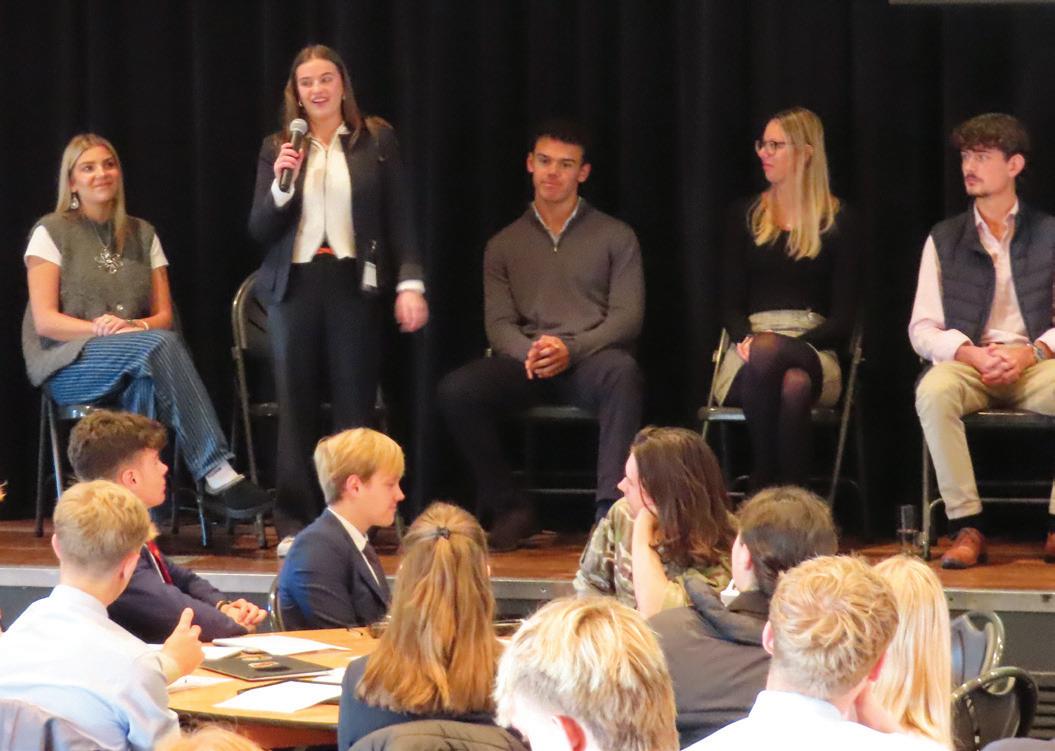
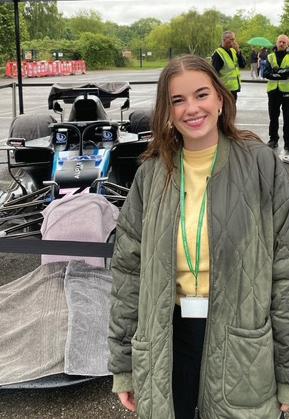
What support do you receive for your degree and in the workplace?
As an apprentice, you’re surrounded by a strong support network. This typically includes:
1. Line Manager
2. Activity Manager
3. Early Careers Lead
4. Buddy (a more experienced apprentice or colleague)
5. Apprenticeship Network
6. (Optional) A senior mentor – in my case, the Senior Vice President of Technology
This structure ensures you’re supported both academically and professionally.
Do you feel valued in the workplace?
Absolutely. I have a defined role, and people depend on my work being completed, on time and to a high standard.
Currently, I’m working on a transformation project within BP’s HR function. I’m helping to build a brand-new internal website for all employees and developing an AI chatbot that relies on the data I create and manage.
Although I have ‘apprentice’ in my job title, I’m not just shadowing others, I have real responsibilities and a job to do!
I’m also on the Early Careers Committee at BP, where I help organise educational events and socials. This gives me experience outside my job title, including budgeting and external communications. It’s incredibly rewarding to see my work bring people together.
What are your future job prospects after your apprenticeship?
Honestly, they’re endless. Being an apprentice proves that you can adapt, manage your time, and get stuck in, all essential skills for any role.
While the qualification may steer you towards specific roles, you can also pivot into many different areas. The Early Careers team will help you find opportunities that suit your strengths and interests, even if it’s not in your original field.
Personally, I hope to work in AI implementation and consultancy, but that might change as I discover new areas and develop new skills.
Top tips for securing a degree apprenticeship?
Do your research and understand what you’re signing up for. Companies are keen to see whether you align with their values, so learn them and reflect them in your answers.
Also, don’t shy away from examples you think are silly. I once told BP that my best example of leadership was running Haygate’s House dance!
It might seem minor, but remember: everyone’s a school leaver. Your experiences matter, and they’re probably stronger than you think.
Any final thoughts?
I couldn’t recommend a degree apprenticeship enough. I’ve been able to travel (and not stay in hostels!) and I’ve enjoyed every minute.
Even if you think university is the right path, apply anyway, you’ll gain valuable interview experience and might receive offers that change your mind. And even if you don’t accept, you’ll be on the radar for future opportunities like graduate schemes.
Having a degree apprentice on the team has been a real game-changer. They bring fresh ideas and a new perspective on real business challenges. What impresses me most is their positive attitude and eagerness to learn; nothing seems to faze them. Even though many are straight out of school, they consistently demonstrate a level of maturity that suits them well in the workplace. I’d encourage any organisation to invest in degree apprentices. Not only do they add valuable support to important projects, but the apprentices also get a brilliant head start in their careers through a mix of hands-on experience and structured learning.
Oliver Leedham, Senior Business Analyst for HR transformations
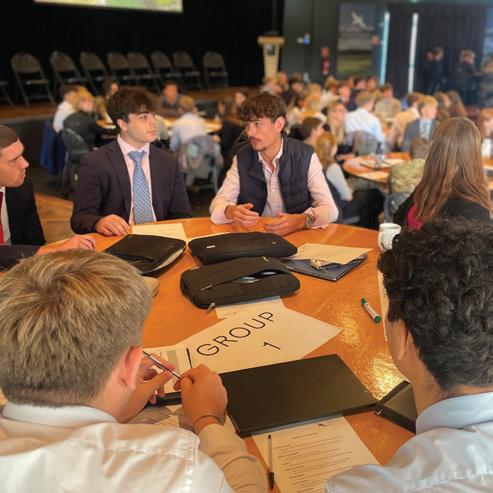

It was a real pleasure to return to school and share my experiences on the degree apprenticeship journey. I was able to highlight some of the key aspects of my role, as well as the exciting opportunities and enjoyable moments that have come with the apprenticeship. I particularly valued the chance to speak with the Sixth Form – it was great to engage with such a curious and enthusiastic group.
Finn Taylor (2022, Summerfield)
The time has come to say goodbye to you as pupils, but your journey with LWC does not end here.
As you embark on the next chapter of your life, whatever that may be, as Sternians you and your parents will always be a part of the LWC community. A community with a wealth of knowledge and experience, a community ready to help you on your journey.
Keep in touch, share your news, come and visit and please let us know if your contact details change.
Contact Clare Faherty at sternians@lordwandsworth.org
We are here to help you stay connected with each other and with the College through our events and LWC connect platform.
Whether you are looking for careers advice, wanting to connect with Sternians and LWC Parents, or are keen to give back by donating or volunteering please do get in touch.
Samantha Corfield Director of Philanthropy and Alumni Relations philanthropy@lordwandsworth.org | 01256 860243
Kate Boyd Senior Philanthropy Manager philanthropy@lordwandsworth.org | 01256 860392
Fran Reid Philanthropy Manager philanthropy@lordwandsworth.org | 01256 860297
Clare Faherty Alumni Relations Manager sternians@lordwandsworth.org | 01256 860356
Nicola Hirst Head of Futures futures@lordwandsworth.org | 01256 518340

The Beckwith @ LWC, 6th September
Creative Arts Dinner @ LWC, 3rd October
LWCGS Golf Day @ Farnham Sands GC, 15th October
LWC Connect Networking Drinks @ The Lost Boy, Farnham, 13th November
Sternian London Lunch @ The Farmers Club, 28th November
Christmas Celebration @ LWC, 11th December
Sternian Saturday @ LWC, 20th June
More information to follow on:
Sternian Sports | LWC Connect Networking Events Reunions (5, 10, 20...) | Golf Society | Motor Society | And lots more!
Check your monthly Sternian E-News for more invitations and news and follow us on social media.
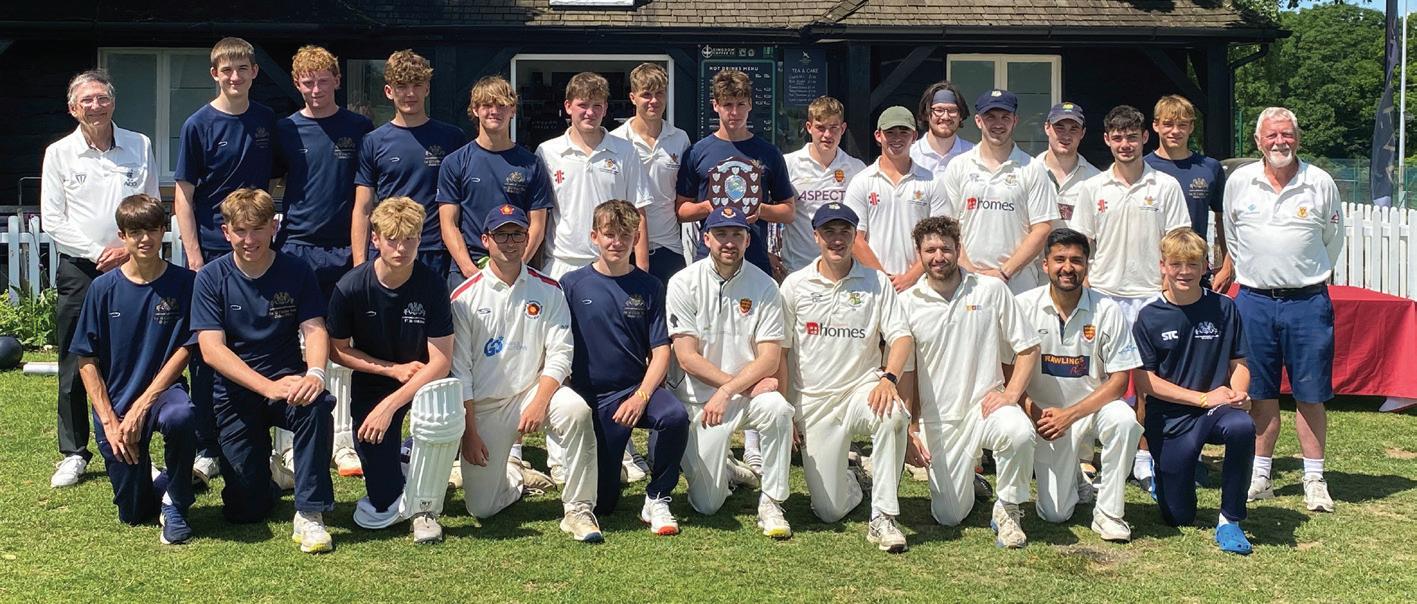
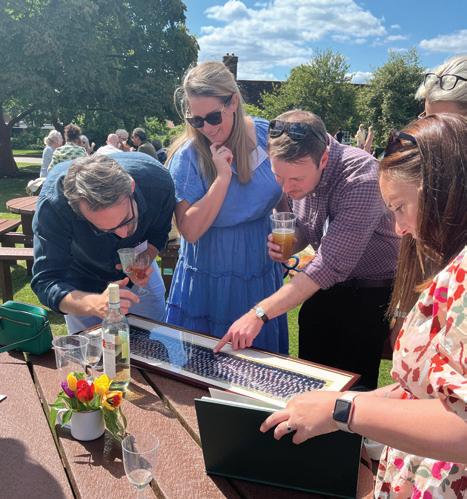
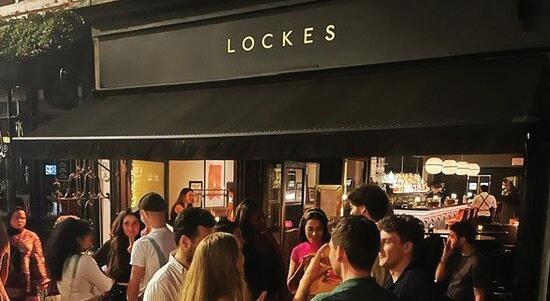



As a Sternian you now have full access on LWC Connect. Our 1000+ members have a wealth of experience and knowledge and are ready to help you as you consider your career options. The great news is you can now make direct contact with other members yourself. The Sternian connection is a strong one so use it!

Amanda Clark (2020, Gosden)
I was in a fortunate position and had been offered a job in a field that really interested me. I connected with a Sternian on LWC Connect who made me really think about my choices. After talking with me he felt my skills would be best suited on a different path, he spent time helping me apply for an alternative role and preparing for the interview. I was subsequently offered that role and I love it! I would never have chosen that path without the guidance I received.
Allie Cooper (2020, Park)
Embarking on my journey to become a lawyer was rather overwhelming. Did I want to be a barrister or solicitor? What sector? Who could I talk to? LWC Connect helped me make great connections. I received a huge response from the community. They were happy to talk and to let me reel off an exhaustive list of questions. In all honesty, LWC Connect has been a fantastic tool that has allowed me to streamline my journey into law, whilst also connecting with fascinating people in the industry.
If you haven’t joined already, join LWC Connect today!
Go to www.lwcconnect.org - Click on ‘get started’
Register with your personal email and a memorable password
Choose Sternian as your ‘affiliation’
Please note your request to join will be pending for 24/48 hour
Get The App!
App Store - Search ‘Graduway’ and open
At the welcome screen type in ‘LWC Connect’
Google Play Store - The app appears as ‘LWC Connect’
Sign in with your email and password
FIND US ON SOCIAL MEDIA @sternians Good luck
Group: Sternians’ Association of Lord Wandsworth College
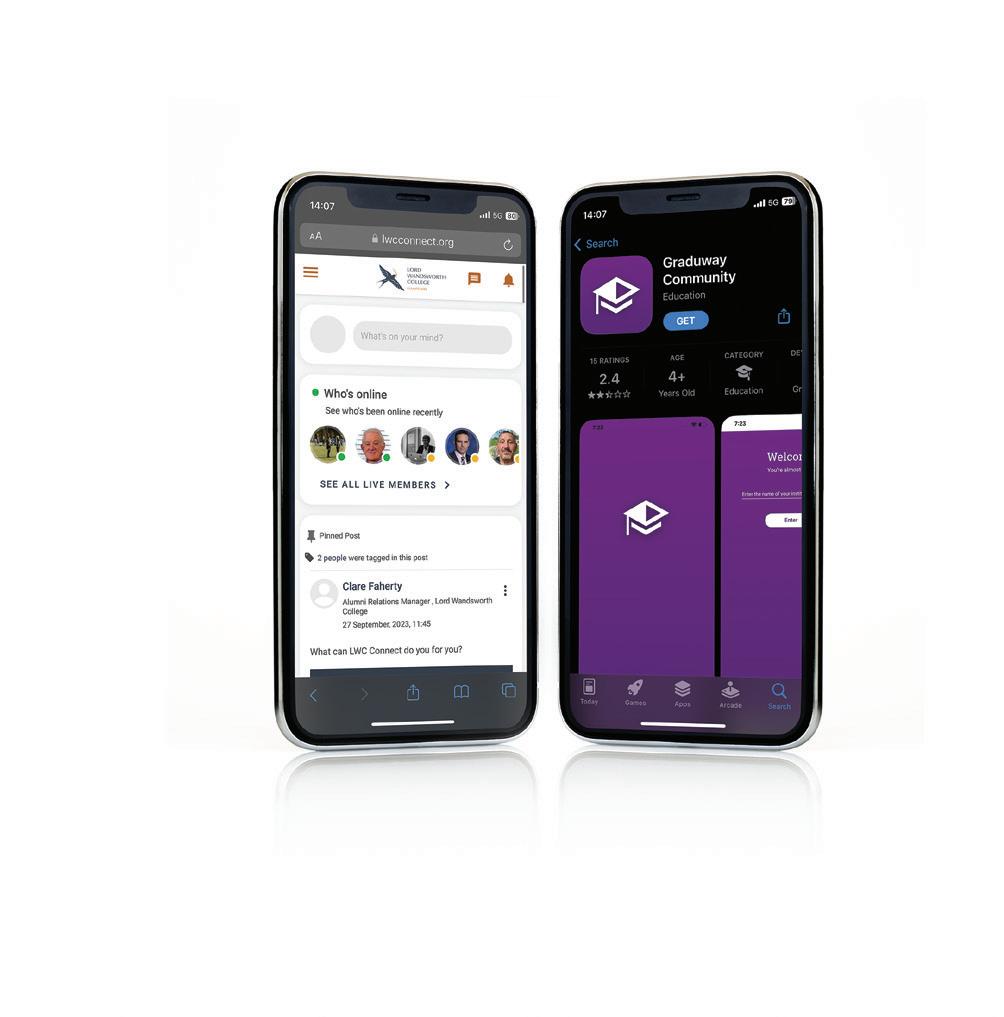
Wishing you all the best. Nicola Hirst and Clare Faherty, Editors.
www.lordwandsworth.org/support-us Lord Wandsworth College, Long Sutton, Hampshire RG29 1TB Sternians’ Association @lwcsternians